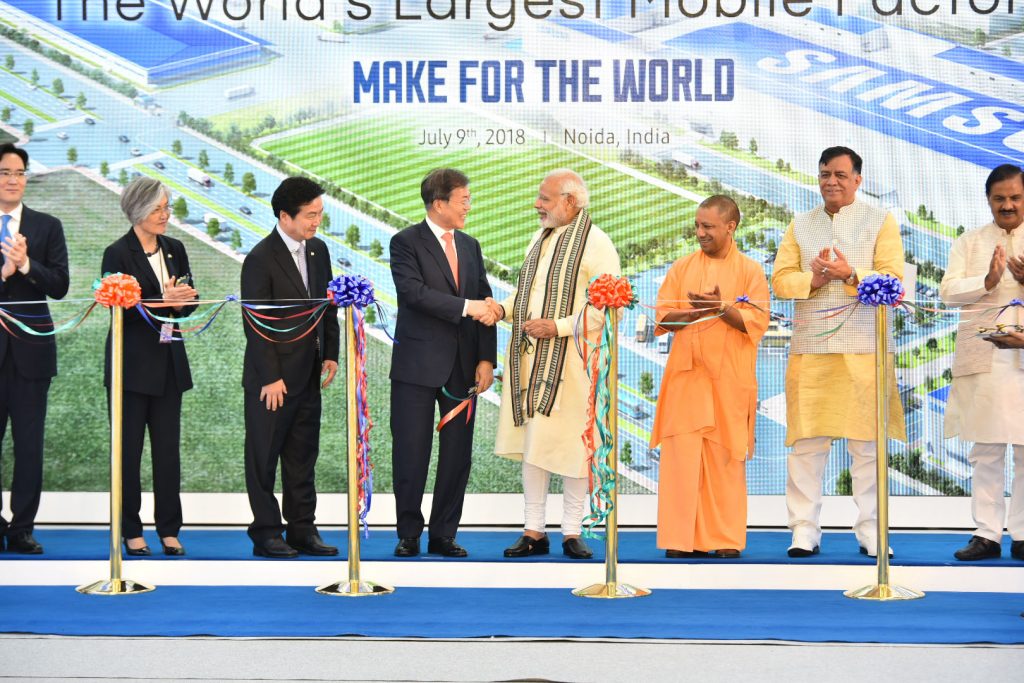India
Why BJP, NDA Government Could Not Pass the Lokpal Bill in 1999-04 Term
In the year 2011 we saw lots of development. From winning Cricket World Cup to the death of Osama, but the event and the development which was on the headlines throughout the year, specially the second half, was the protest led by Anna Hazare to make the Jan Lokpal Bill as a law in the country.
Anna Hazare with his team, as well as Baba Ramdev, tried to their best they could to make the government take this necessary step. But every time the discussion took place in the parliament, disappointment was the only thing which we all got. Today, all the anger is on the current ruling government, despite of various parties, including BJP, voiced against the bill in the parliament few days back. Though now BJP claims that it voted against the bill because they don’t want a weak Government’s bill but want a strong bill like Jan Lokpal.
Lokpal bill is not a new thing. It was first introduced in Lok Sabha in 1968 and after that it has been introduced many times but was a failure each time. The question is, if BJP is really in support of strong Lokpal bill, then why did it not pass when it formed the ruling government from 1999-04?
We analyze and look back on the news papers of that time and try to find the answer.
Friday, January 26, 2001: The LokPal Bill, as appeared on The Hindu.
Then Prime Minister was not only thinking of bringing the Lokpal Bill back on table, but according to the news above, BJP had introduced the Lokpal bill in 1998 but couldn’t be passed because the government had collapsed after a mere 13 months of term.
On April 18, The Union cabinet had cleared the Lokpal bill to be brought to the Parliament for review. Like the previous version of the bill under BJP government, this one also included Prime Minister under it.
April 18, 2001: Cabinet clears Lokpal Bill, as appeared on The Times of India.
After the green signal from the Union cabinet, the bill headed towards the parliament and was introduced in the Lok Sabha on August 14th.
August 14, 2001; Lokpal Bill Introduced in Lok Sabha Eighth Time, as appeared on The Hindu
The Lokpal Bill, seeking to check corruption in high places in the Government, including the office of the Prime Minister, was introduced in the Lok Sabha today.
The much-awaited but often-delayed bill was introduced by the Minister of State for Personnel and Pension, Ms. Vasundhara Raje Scindia, amid noisy scenes over alleged police excesses at a DMK rally in Chennai.
The bill, providing for the establishment of the institution of Lokpal to inquire into allegations of corruption against public functionaries, including the Prime Minister, has been in the pipeline for more than three decades.
It proposes to appoint the Lokpal and two members by the President on the recommendation of a committee headed by the Vice-President and comprising the Prime Minister, the Lok Sabha Speaker, the Home Minister, Leader of the House other than the House in which the Prime Minister is a member and Leaders of the Opposition in the Lok Sabha and the Rajya Sabha.
The Lokpal will inquire into complaints alleging that a public functionary has committed an offence punishable under the Prevention of Corruption Act, 1988. The “public functionary” will cover the Prime Minister, the Ministers, the Ministers of State, the Deputy Ministers and the Members of Parliament. Other constitutional functionaries such as Judges of the Supreme Court, the Election Commissioners have been kept out of the purview of the bill.
Later the bill received tough response and criticism from opposition and other parties, specially there was a disagreement among them on the inclusion of Prime Minister under the range of this bill.
August 16, 2001; Is Lokpal Bill headed for panel again? as appeared on The Times of India
V K Malhotra said the government was keen to pass the bill in this session, sources in the union cabinet indicated that since this was a “fresh bill”, which had serious implications, the “normal practice” would be to send it to a parliamentary committee for scrutiny before taking it up.
A senior cabinet minister compared the lokpal bill to the women’s reservation bill: he said while no one would dare oppose it publicly, there was virtually an unspoken understanding among parties not to allow it to come to the house for voting, as it would be politically embarrassing to be seen defeating it there.
The Samajwadi party says the MPs should be left out from the scrutiny of the lokpal. The main opposition party, the congress, which has publicly stated it supports the bill and wants it passed in this session, is also internally ambivalent on the issue. Of course, if the bill comes up for voting in the house, it is committed to pushing it through. The bill provides for inquiry into any complaint against ministers of the union government, including the prime minister and MPs.
The Union Cabinet has once again decided to put in place a Lok Pal regime, intended to check corruption in high places.
The office of Prime Minister has also been brought under the jurisdiction of the proposed Lok Pal. The Government would try to get the proposal passed in the coming monsoon session of Parliament.
The decision was taken at a Cabinet meeting this evening presided over by the Prime Minister, Atal Behari Vajapayee.
The Cabinet decided to incorporate the recommendations of the Standing Committee on Home Affairs on the Lok Pal Bill, 2001 (introduced in the Lok Sabha on August 14, 2001).
The Standing Committee presented its report to the Lok Sabha Speaker and the Rajya Sabha Chairman on December 31, 2001; and, the report itself was laid on the table of the House on February 26, 2002.
Like its many predecessors, the Vajpayee Government too has intermittently sought to mobilise parliamentary support for an anti-corruption institutional watchdog. In fact, the first time a Lok Pal Bill was introduced was as early as 1969; since then, six more attempts were made, and each legislative initiative was allowed to lapse, invariably with the dissolution of the Lok Sabha.
Lets begin the new year 2012 with the hope of seeing this bill as Law which will be good for India and hence for the world.
Disclaimer: We don’t support or criticize any political party, however we are keen on researching, analyzing and publishing what is not very known. Read our article on difference between BJP and Congress on economic and foreign policy
India
Government Changing Syllabus to Include Sikh History in India

Chief Minister of Uttar Pradesh, most populous state in India, has announced inclusion of Sikh history in the state syllabus. Students of all schools under UP State Board will see the new chapters. The announcement came when Chief Minister Yogi Adityanath (BJP) was observing Sahibzada Diwas.
Why do we Observe Sahibzada Diwas?
Sahibzada Diwas marks the martyrdom of four ‘sahibzada’ (or sons) of Guru Gobind Singh (10th Sikh Guru) and his mother Mata Gujri. In the year 1705, Mughal Emperor Aurangzeb had ordered torturing of youngest sons of Guru Gobind Singh aged 5 and 8. He later executed the little sons by burying them alive into a wall. The reason for this act was that they refused to convert to Islam. Soon after this event Guru Gobind Singh’s mother, Mata Gujri also martyred her life under Aurangzeb’s captivity. The cause of her death is still unclear. Guru Gobind Singh’s other two sons martyred their life in the Battle of Chamkaur Sahib. Thus the 10th Sikh Guru, Guru Gobind Singh had lost his whole family by 27th December. This is an important event in the Sikh history in India and UP Government is finally keen on observing Sahibzada Diwas every year.
Why UP Government is Changing the Syllabus?
Soon after the independence of India in 1947, the school education came under tight grip of far left and communists. Most of the Indian history in the recent past has been written by Romila Thapar and Irfan Habib. They have close ties with left wing ideology and Irfan Habib has delcared himself as Marxist. They wrote history text books by either phasing out sections of Indian history or diluting certain events. The motivation to soft alter the history has been to propagate left-wing/communist ideology. Historian Koenraad Elst once highlighted that Romila Thapar is comfortable neither in Sanskrit nor in Farsi language. The knowledge of these two languages is a must to understand India’s history.
In the recent years, various public opinions have gained momentum to rewrite Indian text books to include more content on Indian rulers and native ideas. Currently, Indian text books mainly teaches about foreign rulers of India such as Mughals and British.
With this announcement of inclusion of Sikh history in history text books, the government is bringing historical facts in mainstream.
27th December as Real Children’s Day
Chief Minister Yogi Adityanath has also reached out to the Education Minister to declare Sahibzada Diwas as Children’s day. He further added that “The history of Sikh gurus will be a part of the syllabus. Apart from this, we should observe December 27 every year as Sahibzada Diwas in all schools. Today is the day to pay gratitude to the sons of the Guru and mother who martyred their lives for the motherland, country and religion.” Yogi Adityanath also said that “No society can move ahead if it forgets history. The Sikh society is known for its hard work. The Sikh gurus sacrificed their lives to defend the Hindu religion. The country will always remember this.”
Yogi Adityanath added that learning about the sacrifices by Sikh Gurus would inspire future generations to dedicate themselves into nation-building. He emphasized that we should make future generations realize that India and Indian culture was safe because of sacrifices of Sikhs.
What Should We Do On Sahibzada Diwas?
Sahibzada Diwas should be an important day for every Indian regardless of their region, culture or religion. On this day, we are in the Holiday mood as it falls right between Christmas and New Year’s eve. However, we should remember that a Guru and his entire family sacrificed their life for the well being of India and the idea of India.
On this day we can fast, do sewa (service), visit a nearby Gurudwara and sleep on the floor at night.
China
Nepal Hindu Rashtra: Time to Wrap Up Communism?

Nepal abolished the Constitutional Monarchy in May 2008 and declared itself as a Federal Democratic Republic. There was a new hope in Nepal as it was becoming world’s newest democracy even though it had dissolved the Hindu Rashtra. However, the democracy in Nepal immediately got into the tight grips of leftists and communists backed by China. It has been almost 12 years since monarchy was abolished in Nepal. Interestingly, the Himalayan country has already seen 11 Prime Ministers in this period. Thus, leaving the Nepalese people still yearning for good and stable governance.
Re-establish Hindu Rashtra
As the political instability is growing in Nepal, people are demonstrating concerns about the future of the country. In fact, Nepalese citizens are unhappy with frequent interference by China and India influencing its unstable communist regime. More voices are now growing in support of reinstating the Monarchy and declaring Nepal as world’s only Hindu Rashtra (which by default offers full religious freedom to other religious minorities as per Hindutva concept of Sarva Dharma Sama Bhava – all paths lead to one).
Former Deputy Prime Minister of Nepal, Kamal Thapa said that if political parties do not recognize the seriousness of reinstating the monarchy, then the country will head for a period of darkness. “Recently, we’ve had high-ranking officials from India and China come to Nepal to try and solve problems within the ruling party,” he said. “We cannot let others dictate what we want to do.”
Communist Party All Set to Suppress Protests, By Force
Kamal Thapa has firmly demanded an all party meet to discuss reinstating of monarchy. Throughout the month of December, 2020 Nepal has seen anti communism protests across the country in support of reinstating the monarchy and Hindu Rashtra. Most importantly, the demand has become a nationwide mass people’s movement. So much so that the communist regime had to send a directive to 77 districts in 7 provinces. The directive suggests suppressing the protests by force. Nevertheless, Rashtriya Prajatantra Party and other royalist groups have ignored this threat from the communist regime. Protester groups have pledged to strengthen the protest in the coming weeks.
Nepal: Demonstration held in capital Kathmandu, demanding restoration of monarchy in the country. pic.twitter.com/TFjmKu9U9Z
— ANI (@ANI) December 5, 2020
Role of China – Hope for Communism in Nepal
China’s ambassador to Nepal is known to have very close relationship with Nepalese Communist regime. In fact, She has been super effective in tilting Nepal’s posture towards its ideological partner, China. One of her greatest achievements in 2020 was artificially manufacturing a border conflict between Nepal and India. Consequently, souring relations between the two Hindu majority nations. In addition, she managed to silence Nepal’s communist government after China took one of Nepal’s border villages under its control. However, recent political turmoil in Nepal and a renewed demand for reinstating of Hindu Monarchy is showing that the situation is now out of Chinese hands
Role of India
Year 2020, was not a good year for India and Nepal relations. India was busy in controlling domestic Covid cases. On the other hand, China had launched an invasive campaign into Indian territory. In addition, India is always busy with Pakistan on its western borders. However, the surprise came to India when China was almost successful in creating a new border tension between India and Nepal.
Those who do not know about Indian government should note that the current ruling party in India finds itself ideologically opposite to communism. This further creates differences between the two countries.
Communist party in Nepal has blamed India for supporting the ongoing anti communism protests in Nepal. However, former advisor to Nepal’s PM has suggested there is no proof that India is fueling pro Monarchy, anti communism demand in Nepal.
Nevertheless, There are certain influencers in India who have, in their personal capacity, expressed support for reinstating the Hindu monarchy. Yogi Adityanath, who is the Chief Minister of an Indian state bordering Nepal, said in 2015 that Nepal should declare itself a Hindu Monarchy. Readers should note that in 2015 Yogi Adityanath was not the Chief Minister yet. However, today he is not only popular in south of Nepal, his popularity is growing in Nepal as well.
Will The World See the first Hindu Rashtra?
It is difficult to answer this question at this moment. However, Nepalese communist government could not resolve the political instability and in December 2020 Nepalese government dissolved the parliament. Nepal will see next elections in April – May 2021. Hopefully, the world will see Nepal’s 12th Prime Minister in 13 years or may be a Hindu King? Royalists and protester groups have expressed confidence in winning next elections. We have our eyes on Nepal for updates.
India
Humanity Endures During Coronavirus Pandemic

Photo by Press Information Bureau, Government of India
The world changed exponentially since the pandemic broke out. We changed too. Emotions are running high. We have learnt to take one day at a time and have stopped expecting changes to happen overnight.
“COVID19 is menacing the whole of humanity – and so the whole of humanity must fight back”
A clarion call from United Nations Secretary-General António Guterres is a call to unity and solidarity. Already plagued by natural/manmade disasters and wars, many countries seem to bite the dust for want of resources in the fight against the virus. Warning each other against complacency is appreciable but never a blame game to cover up a dysfunctional response. Not all update themselves on the governments, new economic policies and R&D on Covid vaccine. Many we come across seem to be making wise individual choices. No matter how badly the tiers of government fail us, there will always be thousands of people working to make things better. Besides, finding reasons and faults on policies for the spread doesn’t help. A virulent strain of flu had managed to spread within a few months to the remotest corners of the world infecting half a billion people – more than a quarter of the human species in 1918 long before the current age of globalization.
Separating, alienating and forswearing the endless moments of contact that knit society together thrust us into frightening new realities. The good is still there. Social distancing is nothing but taking a step back to literally give breathing space to others. Going by news & views, we understand that amid concerns of rising numbers of positive cases in frustrating circumstances, acts of kindness and solidarity are burgeoning. Yes, it’s been extremely sad and sobering to watch this all unfold, but watching people share resources and supporting one another in every conceivable way has made us feel more connected to our local communities. Whether singing a song together out on balconies, getting groceries for the elderly or calling a friend to alleviate anxiety and fear, each one I know play a part and take comfort in a sense of togetherness. We are steadily aware of our limitations yet don’t hesitate to free our wells of compassion. Do we think twice and thrice to make an online contribution to save the lives of people we don’t know and will never know!
Sadly, it has taken an invisible virus to help us belive once again that we are strongest only when we have the welfare of others in our mind. Halfway through quarantine and self-isolation a phone call, a kind word, an opportunity to reach out, a breeze, bird calls, one good news and loss of a loved one, we are hit with the necessary humility and awe we ought to feel and appreciate just how beautiful our world is and precious life is.
Post pandemic recovery will be better and bigger if life goes on with this beautiful idea, of humility, inwardness – as an ethical relationship, for the sake of others. For better or for worse, we have learnt that one can’t be an island unto himself. Lives are intertwined and are bound together. We, humans produce more rubbish than any other species. The growth in the human population is part of the explanation, but cannot account for all of the extra rubbish, a result of haste and greed both which almost skinned humans of humanity.
Unity among countries must ensure that all countries are equipped to trace, isolate and treat people infected by COVID-19. Only a global effort can avoid the collapse of any country’s medical system. Sanctions that affect health care should never be imposed. Development in one part of the world should not rob another country of it’s resources. Humanity gains the upper hand over invisible predators through the sharing of reliable scientific information, global solidarity, vaccinations, antibiotics, improved hygiene and a much better medical infrastructure. Today,it doesn’t take too much to figure out that global sharing and caring is the best defense. The Jing Si aphorism, “Good actions require everyone’s cooperation. So let’s not cling to personal biases” holds good for all times.
Stories of good samaritans are aplenty. To know humanity is still alive and kicking and is at it’s best when united assures us that we’ll come out of this “abnormal” time with a new normal. In their own unique ways, humans respond to protect life and health and ensure respect for fellow beings. ‘single-nucleotide polymorphisms’ are no joke. From handing over meals, survial kits, medicines, home made masks to calling on an old couple across the street, everything is humanity in action and it is the power of this humanity – humane behaviour towards other humans – that we seek to celebrate, improve and increase, especially during crucial times. Remember “A person with a generous heart and compassion for all beings leads the most blessed life”.
With thousands of migrant workers taking it on their chin, vehicles filled with food and ration along highways reach the needy and stranded and canteens serve free food. Rays of sunshine! We see through hypocrisy and deceptions, hear excuses for inefficiency, inadequacy and inflexibility and within the tumult and uncertainty we are doing much, much better in life than we thought we can. Quietly. Kindly. Gently. Being able to spare a part of us to help someone live is worth being thankful for. ” Giving with an expectation for return brings misery”. May we give generously, but don’t guilt ourselves if we can’t. If we have nothing left to spare, let’s go slow and kind.
The world is being taught a lesson, the harder way. This lesson is not about rich and powerful versus poor and powerless but about leadership that treasure the common wealth and common good, above private greed and profit and above protecting the privileges of a handful elites.
None of us are actually going anywhere. Might as well stay. The conclusion we draw from this crisis is that all humans matter equally, that we need to give a hand, raise one another, flourish or perish together- no matter what our limitations are, we’re capable of a great deal. This virus backlash is nothing short of a fleeting lesson to all leaders about how sane, humane societies should function all the time. Those who regard themselves as wonderfully favored of leadership, power and pelf are called to do great things. Anything that constantly arise to cause conflicts or disunion must be questioned, criticized, denounced and judged.
Be it a forced contemplation of our mortality or a sudden urge of self denial or an awareness of the passage of time and life, this screeching halt is proof that humans are designed to be more productive when connected, even in isolation. So, not all hope is lost. The time has come when we must know for ourselves why we believe in humanity as we do.
“Do something good for somebody today; the people who are trying to make the world worst aren’t taking days off.”
Gestures to honor humanity are varied, aplenty. A flypast in India is a cruel joke on the already tumbling down economy and on the selfless humanitarians who spare nothing to reach out. We can only wish the trail of showered petals, if showered will guide the departing victims of COVID19. Flying past/over ground realities is a highly irresponsible act of governments. Also, a misuse and mismanagement of meagre resources.
Was it a premonition that urged saint Thiruvalluvar, celebrated Tamil poet and philosopher to get on with kural 578 which when translated into English goes as
” The world is theirs (Kings) who are able to show kindness, without injury to their affairs, (administration of Justice).
-

 Travel11 months ago
Travel11 months agoImmerse Yourself in Nature: Explore Forest Bathing with a New Guidebook
-

 Europe11 months ago
Europe11 months agoBarcelona and Athens: cities that will leave an everlasting impression
-

 Technology11 months ago
Technology11 months agoHow Virtual Fly Elevates the World of Flight Simulators
-

 Health11 months ago
Health11 months agoExperience in clinical quality: What is it, and why is it important?
-

 Travel8 months ago
Travel8 months agoEnjoy a luxury holiday in Zanzibar
-

 Business7 months ago
Business7 months agoServiceNow Development Consultancy: Business Process Automation as Disruptive Technology
-

 Environment8 months ago
Environment8 months agoThe Future of Fashion: The Rise of Eco-Conscious Brands in the Luxury Market
-

 Business9 months ago
Business9 months agoScreen Printing Services: A Beginner’s Guide to Avoiding Mistakes and Maximizing Your Investment







